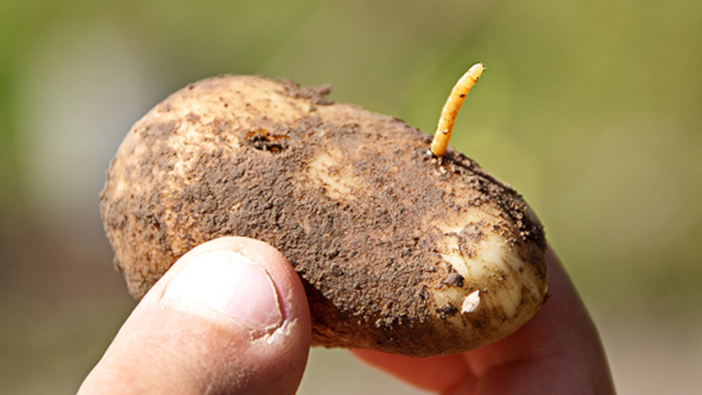Rothamsted Research has launched two new research projects requiring the help of farmers and growers, to conduct investigations into new pest control methods.
The first project launched June 15, with Rothamsted Research asking farmers and growers to send in any large white butterfly caterpillars they come across.
The large white butterfly is sometimes parasitised by a wasp, the Cotesia glomeratus, that kills the caterpillar host. This wasp species also appears to parasitise two major crop pests – the African army worm and the fall army worm.
Asking for any found large whites, researcher Ruth Carter hopes to collect wasps from infected UK caterpillars to start a colony of parasitised armyworms. She hopes that the research will disclose the interaction between the wasps, the caterpillars and they plants they feed on; as plants change their leaf chemistry and the chemicals they emit in response to being fed on.
Ms Carter is asking anybody who comes across large white caterpillars to carefully collect them, place them in a pot with leaves of the plant they were on, and then send them to her; if you see the characteristic yellow cocoons on or near a dead caterpillar, please send those too.
For more information, please contact Ms Carter (ruth.carter@rothamsted.ac.uk).
Rothamsted Research’s second project is investigating the issue and control of wireworm, as traditional pest control methods are phased out in Europe – such as seed treatments and other contact insecticides.
Wireworms, or click beetle larvae, are a major cereal and root vegetable pest, and the worry is, as certain pesticides are phased out, new soil insecticides may not become available again for wireworm management.
Therefore, Rothamsted Research is asking farmers and growers to get in touch if they have had or are experiencing a wireworm problem; to help develop new wireworm control methods.
Any farmers or growers who notice wireworm damage on their land and want to help the project should get in touch with either Dr Gareth Thomas (gareth.thomas@rothamsted.ac.uk) or Dr Jozsef Vuts (jozsef.vuts@rothamsted.ac.uk).


